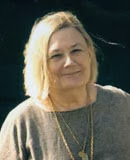About Me

- Anita Burgh
- I am a writer - late developer since I wasn't published until I was 50. I have now written 23 novels, numerous short stories and articles.
Followers
Blog Archive
My Blog List
Powered by Blogger.
Slideshow
Sunday, 4 October 2009
Everyone starts a novel in a different way. With a theme or a plot. Some start with a character. Some with a single sentence. Others with a place. The choice is wide, the choice is yours.
Which do I do? I’m a theme person. Class. Rejection. Greed. Jealousy. Money. Each of these have sent me off on the adventure. What about a book on sibling rivalry? Then I think about it and then I make notes of what the theme means, where it can go, words related to the theme and it begins to form.
I’m not a plotter. Which doesn’t mean I don’t wish I was. To have a plot mapped out for the whole book must be a great comfort. Whereas, diving in, as I do, with little idea what is going to happen, simply paddling frantically towards an end about which I have no concept – that is scary. I always thought it was rather unprofessional too, not what a proper writer should do. So once I plotted a whole book, took me days. What happened? After 1000 words I’d gone off on a different tack.
Not knowing what is going to happen keeps me interested and hopefully it will have the same effect on my readers. If I can surprise myself then I can surprise them.
The true beginning of a novel is the title. What makes a good one? Ideally one that gives a hint of the flavour of a book – not always possible. One that is easy to say, to remember, and, don’t forget, one that fits the cover!
YUPs often think the beginning is the first page but it isn’t it is the first third of your story. And a beginning can be anywhere in your story.
You can:
Begin in the past, and then go immediately to the present.
Begin with the middle and go back and once at the middle again go forward.
Begin at the present, and then go back.
Begin at the present and go forward, which is how most books are written.
What do we need to do in this start?
It helps if you let the reader know the type of book you are writing.
That you set the scene – the where are we?
Introduce your main characters and it will help you if you do this as soon as possible.
And don’t forget the mini beginnings - the start of every new chapter.
Warnings
I constantly see advice that the start of a novel must be as strong and memorable as you can make it – those wretched hooks people go on about. The angst that is expended trying to make a strong and unforgettable first sentence, first paragraph etc. All very well, but beware. Do this only if you can maintain this high momentum. How often have you started a book on the basis of a fabulous beginning only to find, several pages further on, that this has petered out and the writing is pedestrian.
Beware of too many characters too soon. Too many leads to confusion. It’s far better to introduce them slowly.
Last of all, I often think that too much time can be spent on the start of a novel. Why? If there is no plot, then the story may change and the beginning no longer fit when you get to the end. If this is a first novel then it is likely that your style will have changed by the time you reach the end certainly your writing will be better, you will have learnt many skills. And by the finish, you find either you no longer like the start or it is no longer the right one. Of all my novels I should think only half a dozen have the original beginnings.
This weeks FAQ.
Mary Jon asked: When you've been rejected, should you write a thank-you to the agent for taking the time? . . . Is it done?
My answer would be that I think this would be a lovely thing to do. It shows good manners, it shows no rancour, and, of course, it ensures you are remembered.
Subscribe to:
Post Comments
(Atom)






I love the way you start- I only discover my theme after it hits me over the head - usually at the end of the first draft. My 'books' begin with a series of images, or words, fragments of an overheard story.
ReplyDeletelx
Another great post!
ReplyDeleteIn my head, I always begin with my main character and her problem. The setting usually comes with her, the hero and his problem make themselves known to me quite soon - and then I take it from there.
Thank you. I was really interested to read about your beginnings; I've never consciously begun with a theme, but have found that it emerges during the writing. I'm going to try your approach as an exercise to see what difference it makes.
ReplyDeleteThanks for this, Anita. Most interesting as usual. I plot most of the outline but there are always large gaps and holes and often I deviate but it helps me to know ROUGHLY where I'm going. Agree completely about too many people all at once...though I have started one book with a party, albeit a small family lunch party. I think/hope it worked okay!
ReplyDelete